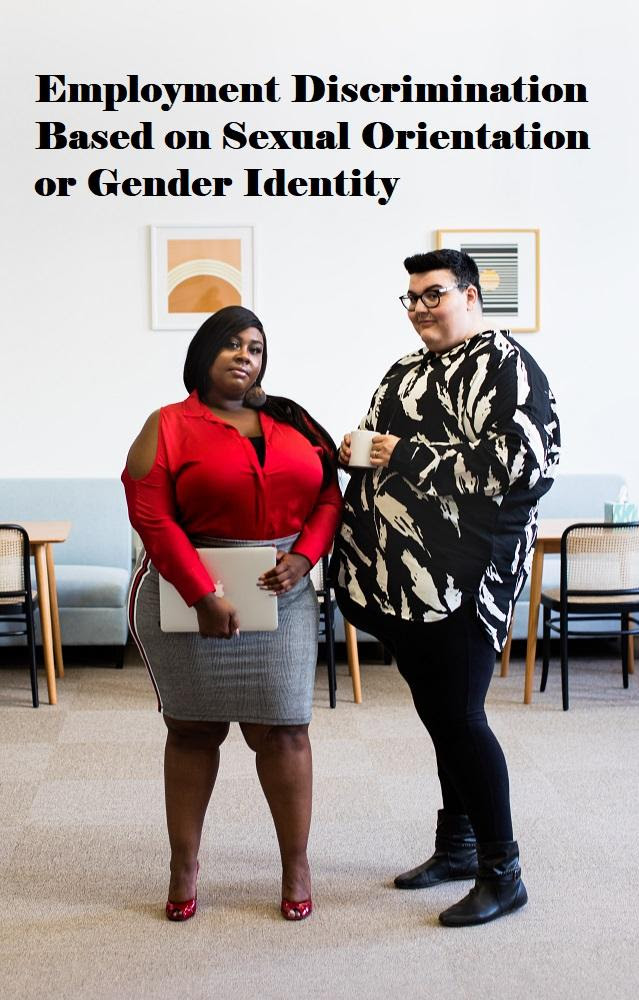Last year, in Bostock v. Clayton County, the US Supreme Court held that an employer who fires an individual for being gay or transgender violates Title VII of the Civil Rights Act of 1964, which prohibits sex-based discrimination in employment.
The opinion, written by Justice Neil Gorsuch, ruled that “[a]n individual’s homosexuality or transgender status is not relevant to employment decisions. That’s because it is impossible to discriminate against a person for being homosexual or transgender without discriminating against that individual based on sex.”
The Equal Employment Opportunity Commission (EEOC) has now issued guidelines clarifying how this ruling applies to employers across the nation, even those areas where state or local law permits discrimination against gay and transgender employees.
Who Does Title VII protect?
Title VII applies to private-sector employers with 15 or more employees, to state and local government employers with 15 or more employees, and to the federal government as an employer. Title VII also applies to unions and employment agencies.
If the employer is covered, Title VII protects job applicants, current employees (whether full-time, part-time, seasonal, or temporary) and former employees, regardless of citizenship or immigration status.
Are There Any Exceptions?
Title VII allows “religious organizations” and “religious educational institutions” to hire and employ people who share their own religion.
Courts also apply a “ministerial exception” that bars certain employment discrimination claims by the employees of religious institutions because those employees perform vital religious duties at the core of the mission of the religious institution.
Does This Only Apply to Hiring and Firing?
No. Under Title VII, employers are prohibited from discriminating against individuals based on sexual orientation or gender identity with respect to not only hiring and firing, but also to promotions, demotions, discipline, training, work assignments, compensation, fringe benefits, furloughs, and other terms, conditions, and privileges of employment.
It is also unlawful for an employer to create or tolerate severe or pervasive harassment based on sexual orientation or gender identity. Further, if an employee reports such harassment by a customer or client, the employer must take steps to stop the harassment and prevent it from happening again.
Doesn’t This Discriminate Against Employees Who Aren’t LGBTQ+?
No. Title VII also prohibits employers from discriminating against job applicants and current or former employees because the applicants or employees are, for example, straight or cisgender (non-transgender). The same rules about harassment apply as well.
What If My Customers or Clients Don’t Like Me Having Gay or Transgender Staff?
An employer covered by Title VII is not allowed to discriminate just because customers or clients would prefer to work with people who have a different sexual orientation or gender identity.
A geriatric medical practice, cannot, for example, fire the receptionist because many of its patients complain about the fact that she is transgender.
Nor can a gay bar insist upon hiring only LGBTQ+ bartenders as a means of making its customers more comfortable.
What If the Employer Just Thinks a Man Isn’t Masculine Enough? Or a Woman Isn’t Feminine Enough?
Employers are not allowed to discriminate against an employee because that employee fails to conform to a sex-based stereotype about feminine or masculine behavior.
Similarly, prohibiting a transgender person from dressing or presenting consistent with that person’s gender identity constitutes sex discrimination.
This means that, for instance, a man cannot be discriminated against for wearing a dress, whether or not that man is LGBTQ+. In other words, a covered employer is prohibited from discriminating against that employee for wearing a dress, whether or not the employee is cisgender or transgender and whether or not the employee is gay or straight.
************
Whether you are an employer or an employee, please feel free to contact us if you have any questions about employment discrimination or any other employment-law issues.
For more information about employment law, see Employment Law (in Plain English)®, co-authored by members of this law firm. The book is available through Skyhorse Publishing, Amazon, Barnes & Noble, Powell’s Books, and Bookshop (an online bookstore that allows you to support your favorite independently owned bookstore).
Photo by AllGo – An App For Plus Size People on Unsplash






